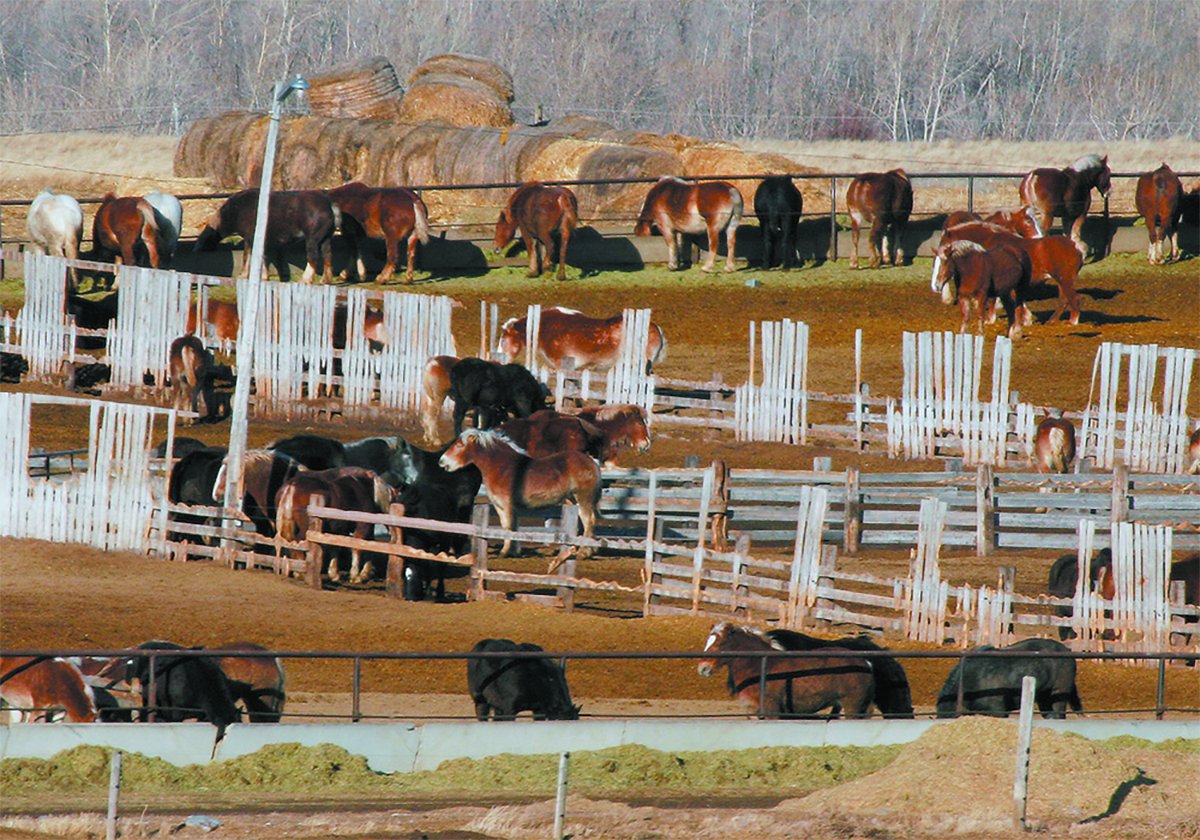RED DEER, Alta. – A major proposal in the review of the prairie grain transportation system would use contracts to procure and deliver the grain.
The proposal suggests either the individual producer or the Canadian Wheat Board working collectively for farmers would hold the contract.
“This is not a tinkering exercise,” said Arthur Kroeger, who is charged with the task of bringing grain transportation in line with the Willard Estey report.
About 100 producers and farm leaders met here July 22 to hear about the evolution of a commercial system with fewer regulations and more efficiency.
Read Also

Canada’s slaughter horse industry lacks transparency
The lack of clear reporting and public access to data keeps the industry largely hidden, leaving questions about humane treatment and traceability unanswered.
The final report must be in the federal government’s hands by Sept. 30. If consensus is not achieved on some points, Kroeger said he will advise the government on the direction it should take so legislation can be in place by August 2000.
Among the major recommendations are changes to the role of the CWB.
The first option offers a fully tendered concept where each party along the chain enters contracts. Once a sale is made, the board tenders to grain companies or other potential tenderers.
The board could also sign long-term tenders for later sales. A decision would then be needed as to whether the grain would be stored in commercial facilities or on farm until a sale is made.
Successful tenders receive grain into storage from producers either on a contract basis between a grain company and a producer or on a street purchase basis.
The tenderer then contracts with the railway to move grain to an export terminal. The tenderer would be responsible for ensuring quality, grades and meeting vessels at port.
The tenderer would enter a contract with the terminal to receive the grain.
“There is a debate as to whether grain should be received by the board in-store or delivered to the board at the end of the spout,” said Milt Fair, head of the commercial relations committee.
Price pooling should not be affected because the tendered price would be at the initial price. There could be variations of basis in the country because of freight rates or grades. The cash advance program could continue.
The second option allows the board to contract between producers and customers. This gives the board significant involvement in grain handling and transportation.
The contract establishes obligations with railroads specifying capacity, price and performance.
The board would also enter into terminal agreements. The contract is binding between the board and the terminal as to volume throughputs and timing of the throughputs.
Board sales are tied to these agreements and car allocations.
The board would assign supply contracts to grain companies by one of three methods – tendering, a general contract or performance measures.
All commitments would be basis in-store with blending revenue credited to the pool account.
These changes would eliminate the existing car allocation process and move away from the inefficiencies that are suggested in grain movement, said Fair.
WP photo by Michael Raine
Buzz off
Dustin Dinwoodie, 12, of Portage la Prairie, Man., uses his driving whip to keep the flies off BlueBoy, a miniature horse. Dinwoodie competes in the driving and halter competitions and was attending the Strathclair, Man., annual summer fair.

















